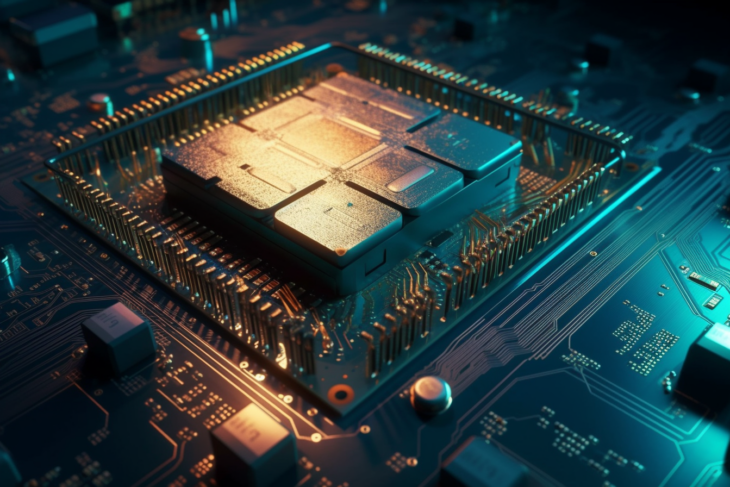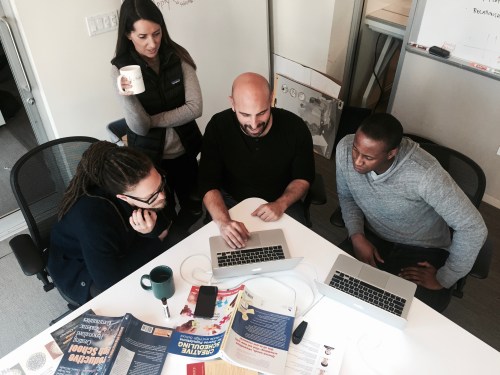
Welcome to Perceptron, our weekly roundup of the most interesting recent discoveries and papers in the field of artificial intelligence. Machine learning is a key technology in practically every industry now, and there’s far too much happening for anyone to keep up with it all. This column aims to collect some of the most promising research and explain why they matter.
Reducing Emissions from Concrete Production
This week’s roundup starts with a pair of forward-thinking projects from Facebook (now Meta) that could have a significant impact on the environment. The first project, which we’ll call "Meta’s Green Initiative," aims to reduce emissions from concrete production. As we all know, cement is one of the most widely used building materials in the world, and it’s also a major contributor to greenhouse gas emissions.
How Does It Work?
The Meta team has developed a new approach to reducing emissions from concrete production by using a combination of machine learning algorithms and data analysis. The project uses a large dataset of cement production processes to identify patterns and anomalies that can be used to optimize the production process and reduce waste.
The Results
The results are promising, with a reduction in emissions of up to 20% compared to traditional methods. This is a significant breakthrough, especially considering that concrete production accounts for around 8% of global CO2 emissions.
Teaching Robots to Interact with Everyday Objects
Another exciting project comes from MIT and the University of Washington, where researchers are working on teaching robots to interact with everyday objects in a more natural way. This is an important area of research, as it could lead to more practical applications for robotics in our daily lives.
How Does It Work?
The team has developed a new technique that focuses on observing and inferring 3D geometry very closely. This allows the robot to learn how to manipulate objects with just a few examples of human demonstrations. In fact, it only takes around 10 human demonstrations per object for the system to learn how to interact with it effectively.
The Results
The results are impressive, with an 85% success rate in manipulating everyday objects using this new technique. This is a significant improvement over traditional methods, which often require hundreds or even thousands of examples or repetitions in a simulator.
Multimodal Visual Language Model from DeepMind
Finally, we have some promising work from DeepMind on a multimodal "visual language model" that combines visual knowledge with linguistic knowledge. This is an exciting area of research, as it could lead to more natural and intuitive interfaces for AI systems.
How Does It Work?
The team has developed a new model called Flamingo, which can engage in dialogue while also performing visual identification tasks. This is achieved by marrying language and visual understanding together, creating a sort of crossover representation between grammar and imagery.
The Results
The results are promising, with significant improvements in performance compared to traditional models. However, this kind of multimodal approach is still highly experimental and computationally intense.
Conclusion
This week’s roundup has shown us some exciting developments in AI research, from reducing emissions from concrete production to teaching robots to interact with everyday objects. These projects have the potential to make a significant impact on our daily lives and the environment, and we can’t wait to see what other breakthroughs are on the horizon.
Related Stories
- OpenAI is trying to extend human life, with help from a longevity startup
- Climate: Amazon bought more renewable power last year than any other company
- Startups: Big Tech expands its reach with new startup acquisitions and investments
Stay Up-to-Date with the Latest in AI
Want to stay up-to-date with the latest developments in AI? Follow us on social media or subscribe to our newsletter to receive the latest news and updates directly in your inbox.
Topics:
- AI
- cement
- Climate
- concrete
- Deep Science
- DeepMind
- machine learning
- Meta
- MIT
Writer & Photographer:
Devin Coldewey is a Seattle-based writer and photographer. His personal website is coldewey.cc.
Most Popular Stories:
- Apple brings Store app to Indian market
- FAA had to divert flights because of SpaceX Starship explosion
- SpaceX catches Starship booster a second time, loses ship to an ‘anomaly’ in space
- Mark Cuban is ready to fund a TikTok alternative built on Bluesky’s AT Protocol
- Duolingo sees 216% spike in US users learning Chinese amid TikTok ban and move to RedNote
Subscribe for the Industry’s Biggest Tech News:
Get the best of TechCrunch’s coverage every weekday and Sunday with our daily newsletter.














